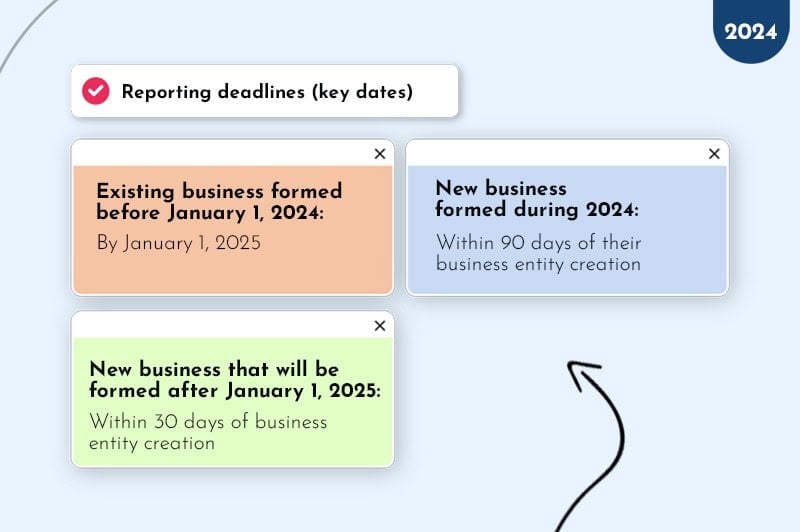FinCEN states that it works hard to inform you of your obligations for beneficial ownership reporting, including how to update and correct your beneficial ownership information.
It also understands that some small business owners might make a mistake or omission when filing their initial report, and allow 90 days after filing to amend your original report to avoid penalties.
So, there’s no valid justifications exist for failing to comply with the Corporate Transparency Act!
Businesses and individuals that fail to fulfill their beneficial ownership reporting obligations could face severe penalties.
What are the penalties for not complying with BOI reporting requirements?
Some stiff penalties exist if you fail to comply with your beneficial ownership reporting requirements, including possible jail time and fines.
FinCEN assigns penalties for 3 reasons:
- Failing to file your beneficial ownership information report.
- Knowingly filing false beneficial ownership information.
- Failing to update or correct previously reported beneficial ownership information.
The penalties are:
As of March 21, 2025, there are no longer any penalties for domestic entities that fail to report BOI.





